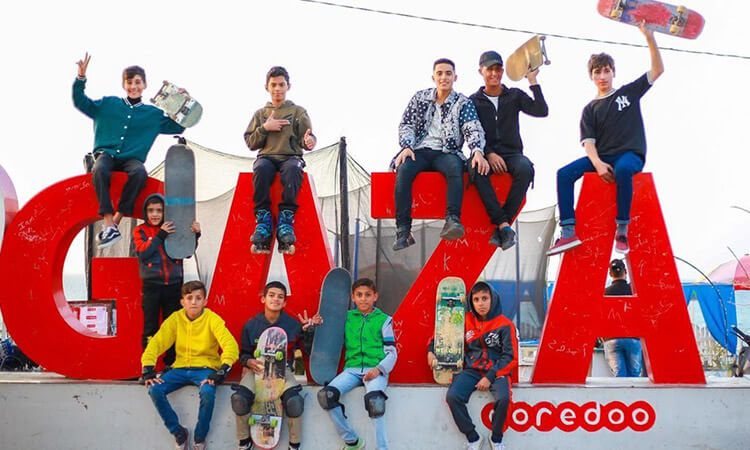
In the words of Maen Hammad, skateboarding is so much more than throwing down tricks: it critiques the world around us, brings people together, and has the ability to create strong connections of support and solidarity beyond skateboarding itself. People build unbreakable bonds of friendship around this shared love based on a mutual experience of struggle, determination, creativity and freedom; wherever you are in the world you have a friend in skateboarding. Reflecting this we have seen initiatives around the world utilising skateboarding to support youth, but also nurture and prosper global networks of skateboarding solidarity. This includes the work of Gaza Freestyle Festival, Skate Gaza and SkatePal all of which support Palestinian youth through skateboarding. For the latter, many people across the world have discovered the famously welcoming Palestinian people, exploring the land on their skateboard and connecting with local skate scenes whilst learning about the history, heritage and culture of Palestine.
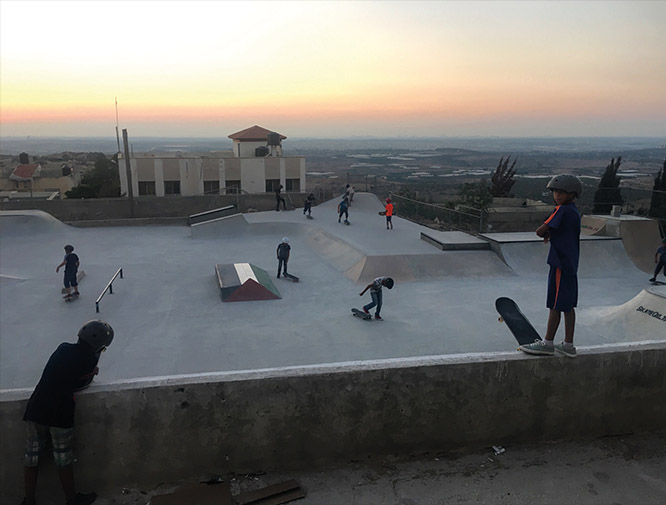
This is important in relation to the recent history of Palestine. In 1948 hundreds of thousands of Palestinian people were displaced as the British government handed rule of the land to a newly formed Israeli state - this is called the Nabka in Arabic translated as disaster. 75-years have passed marked by conflict, wars and injustice. Palestinian people have resisted this occupation calling for an independent Palestine and protection of people living there. Since 1948 the rights of Palestinian people have been eroded in hope to remove them from the land; this includes land rights, democratic rights, and human rights. Gaza has been besieged since 2005 described as an “manmade open air prison” by the UN. It is now being routinely bombed throughout the day and night including residential buildings, schools and hospitals with fuel, food, water and medical supplies for Palestinian people blocked from entering.
There have been over 10,000 Palestinian deaths across violence Gaza and the West Bank since October 7th, most of which have been children. Many Palestinians see recent events as the final steps to what started in 1948: the complete removal of Palestine and its people. This has been overwhelming, terrifying to witness, and left many feeling helpless. However, we are calling on the international skateboarding community to send a clear message of solidarity with Palestinian people. As we all identify with the personal struggles of skateboarding that makes the community so welcoming and strong, many of us have also had the privilege to prosper in communal struggles from supporting our own crews to the growth of our wider community. But we also recognise that skateboarding is more than this; we now look to this global skateboarding community in solidarity of national struggles for freedom and in support of Palestine. We ask skateboarders to share this message within their network, be vocal in support of the Palestinian people, and sign our open-letter towards a Free Palestine:
Sign the open-letterBelow is a short guide for how skateboarders can proactively support Palestinian people and send a clear message: we do not support the war crimes in Gaza and call for a free Palestine.
The situation in Palestine and the wider Middle East is complex and intentionally littered with disinformation and fake news, in part, due to Western government involvement in the region. But, recent events are not isolated incidents; the Palestinian people have faced a long and violent oppression since 1948 and it is important to understand what is happening at the moment in this wider context. Knowledge is power and learning the history of Palestine, the ways in which the people have been oppressed for several decades, and the wider context in which the recent events have taken place is important to know, share with your friends, and to have conversations about:
With so much fake news it is important to take time and consider the facts we do know. Here are key points to consider and to develop your own opinion after taking time navigating sources of information across diverse points of view:
People avoid online activism due to not feeling comfortable knowing about the topic or valuing online activism to approach big issues. However, over the last month violence is happening on the ground in Palestine and through the media. The internet has been routinely cut-off in Palestine, there has been a clear targeting of media reporting in Gaza, a ban on foreign journalists entering the strip, and social media has been used for disinformation and PR campaigns to distort what is happening in Palestine.
However, social media can be a powerful tool to share truth and hold governments to account: Palestinian people are actively asking the global community to be vocal and share stories on social media. Sharing information on social media counters disinformation, fake news and challenges anti-Palestinian narratives from Western media. Not only does engaging with issues via social media centre voices of Palestinian people who are actively being suppressed, sharing information can help other people gain a clearer understanding of what has been happening in Palestine since 1948. Being active on social media facilitates a global network of solidarity through sending clear messages of support to the people in Gaza, wider-Palestine and around the world when anti-Muslim hate is prominent, as well as pressurising governments and influential people to speak out and end these injustices.
However, the choice of words you use online is important; discourse and narratives have been weaponised in relation to anti-Muslim and antisemetic violence across the world, so choosing the right words can help make the situation clearer and safer:
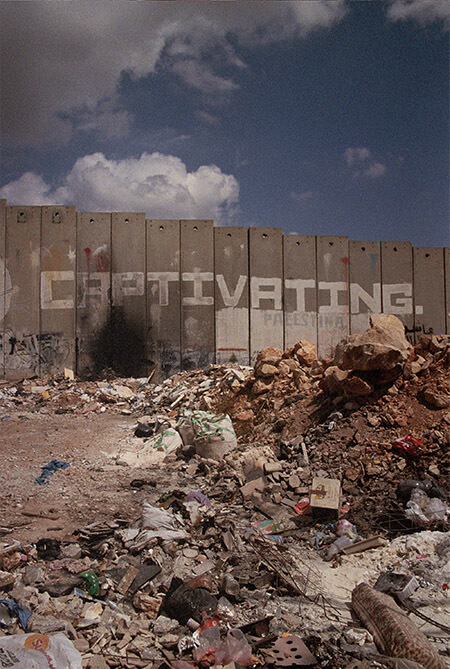
The last month has seen some of the world’s largest protests in support of Palestine. This can take online activism into the real world; meeting and standing in solidarity with the people and families most affected by what is happening. Our social media feeds have been flooded with distressing and graphic images of events in Palestine, and protests can also become a space of collective grief and processing. Likewise, as millions of people have taken to the streets we are seeing that protests do work; swaying public opinion, pressuring politicians and holding their own complicitness to account.
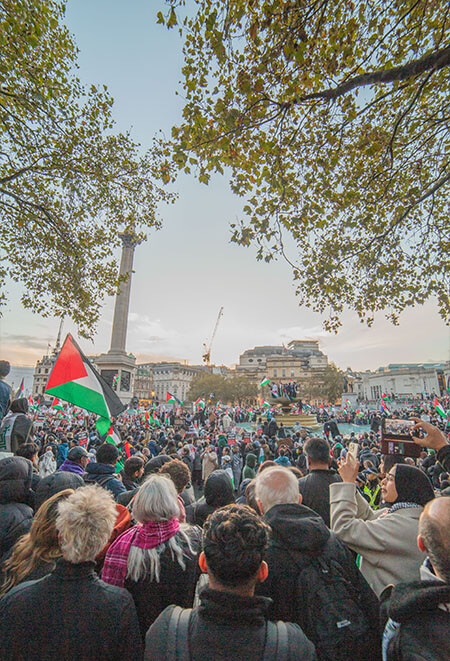
Writing, emailing and calling your elective representatives sends a direct message that you are watching what they are doing and ready to hold them to account. These people rely on your backing for their job; the more vocal and clearer messages we can send, the more they will begin to act accordingly. This can seem like a big task to do, but there a free templates online to complete with your own information, ready to send in five minutes:
Identify your representative on the website https://www.nosdeputes.fr by entering your postcode, copy paste their email address and send them this email (personalise it)
We can also pressure private companies financially supporting crimes in Gaza and the ongoing occupation of Palestine. This is called the Boycott, Divestment and Sanctions (BDS) Movement. Inspired by the South African anti-Apartheid movement, BDS highlights private companies and corporations financially supporting the oppression of Palestinian people, and encourages people to boycott organisations to remove funding that pays for military equipment seen devastating Gaza. Boycotting is clear way in which people can have a direct and meaningful impact on supporting Palestinian people around the world:
BDS are currently asking people to boycott the following brands who support illegal settlements in Palestine, sponsor military expansion or profit from resources of Palestinian land:
HP, Siemens, AXA, Puma, Israeli Fruit and Vegetables, SodaStream, Ahava, Dead Sea Minerals.
Over the last month, the following companies have supported the killing of civilians in Palestine by sponsoring Israel Occupation Forces:
McDonalds, Starbucks, Coca-Cola, Pepsi, Danone, Nestlé, Carrefour, Lays, Pizza Hut, Burger King, Lipton
You can find out more about BDS and the impact of boycotting here:
We can also support organisations who are providing essential services to the people living in Gaza and wider Palestine. Beyond supporting local skateboarding scenes, people in Gaza currently require immediate medical support as hospitals run out of fuel and equipment, and aid trucks are rarely allowed in to support an overwhelming population in need. Here is a list of authenticated organisations working on the ground in Palestine including Gaza who require further financial support:
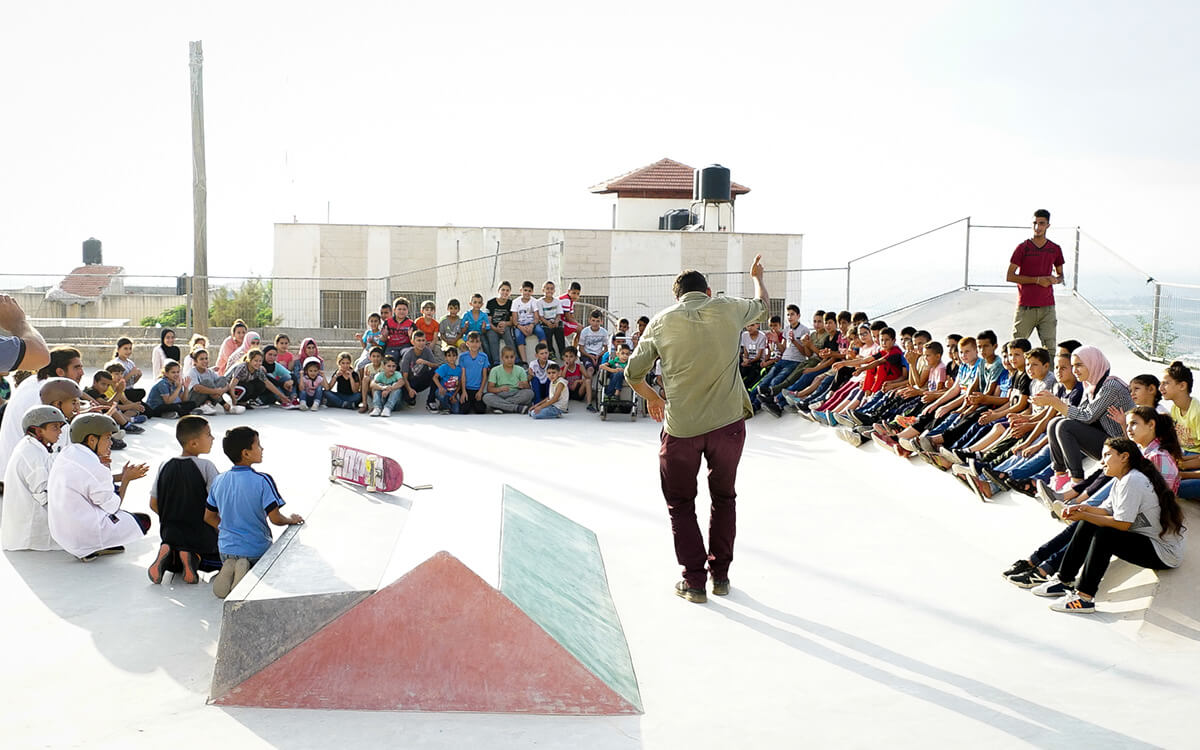
The situation in Palestine and the wider Middle East is complex and intentionally littered with disinformation and fake news, in part, due to Western government involvement in the region. But, recent events are not isolated incidents; the Palestinian people have faced a long and violent oppression since 1948 and it is important to understand what is happening at the moment in this wider context. Knowledge is power and learning the history of Palestine, the ways in which the people have been oppressed for several decades, and the wider context in which the recent events have taken place is important to know, share with your friends, and to have conversations about:
With so much fake news it is important to take time and consider the facts we do know. Here are key points to consider and to develop your own opinion after taking time navigating sources of information across diverse points of view:
People avoid online activism due to not feeling comfortable knowing about the topic or valuing online activism to approach big issues. However, over the last month violence is happening on the ground in Palestine and through the media. The internet has been routinely cut-off in Palestine, there has been a clear targeting of media reporting in Gaza, a ban on foreign journalists entering the strip, and social media has been used for disinformation and PR campaigns to distort what is happening in Palestine.
However, social media can be a powerful tool to share truth and hold governments to account: Palestinian people are actively asking the global community to be vocal and share stories on social media. Sharing information on social media counters disinformation, fake news and challenges anti-Palestinian narratives from Western media. Not only does engaging with issues via social media centre voices of Palestinian people who are actively being suppressed, sharing information can help other people gain a clearer understanding of what has been happening in Palestine since 1948. Being active on social media facilitates a global network of solidarity through sending clear messages of support to the people in Gaza, wider-Palestine and around the world when anti-Muslim hate is prominent, as well as pressurising governments and influential people to speak out and end these injustices.
However, the choice of words you use online is important; discourse and narratives have been weaponised in relation to anti-Muslim and antisemetic violence across the world, so choosing the right words can help make the situation clearer and safer:

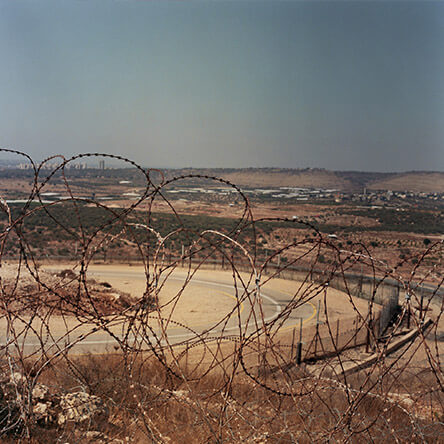
The last month has seen some of the world’s largest protests in support of Palestine. This can take online activism into the real world; meeting and standing in solidarity with the people and families most affected by what is happening. Our social media feeds have been flooded with distressing and graphic images of events in Palestine, and protests can also become a space of collective grief and processing. Likewise, as millions of people have taken to the streets we are seeing that protests do work; swaying public opinion, pressuring politicians and holding their own complicitness to account.

Writing, emailing and calling your elective representatives sends a direct message that you are watching what they are doing and ready to hold them to account. These people rely on your backing for their job; the more vocal and clearer messages we can send, the more they will begin to act accordingly. This can seem like a big task to do, but there a free templates online to complete with your own information, ready to send in five minutes.
Identify your representative on the website https://www.nosdeputes.fr by entering your postcode, copy paste their email address and send them this email (personalise it)
We can also pressure private companies financially supporting crimes in Gaza and the ongoing occupation of Palestine. This is called the Boycott, Divestment and Sanctions (BDS) Movement. Inspired by the South African anti-Apartheid movement, BDS highlights private companies and corporations financially supporting the oppression of Palestinian people, and encourages people to boycott organisations to remove funding that pays for military equipment seen devastating Gaza. Boycotting is clear way in which people can have a direct and meaningful impact on supporting Palestinian people around the world:
BDS are currently asking people to boycott the following brands who support illegal settlements in Palestine, sponsor military expansion or profit from resources of Palestinian land:
HP, Siemens, AXA, Puma, Israeli Fruit and Vegetables, SodaStream, Ahava, Dead Sea Minerals.
Over the last month, the following companies have supported the killing of civilians in Palestine by sponsoring Israel Occupation Forces:
McDonalds, Starbucks, Coca-Cola, Pepsi, Danone, Nestlé, Carrefour, Lays, Pizza Hut, Burger King, Lipton
You can find out more about BDS and the impact of boycotting here:
We can also support organisations who are providing essential services to the people living in Gaza and wider Palestine. Beyond supporting local skateboarding scenes, people in Gaza currently require immediate medical support as hospitals run out of fuel and equipment, and aid trucks are rarely allowed in to support an overwhelming population in need. Here is a list of authenticated organisations working on the ground in Palestine including Gaza who require further financial support:

This list is of course not exhaustive nor uncompromising; the situation in Gaza and wider Palestine is changing daily and requires a solidarity movement resolute and ready to act. Some of these links and ideas provide a starting point to understanding the situation and ways to support Palestine amongst daily changing circumstances. Nothing can match the beauty of solidarity and liberation movements; creating powerful bonds between people that are resolute to malicious and violent crimes we are seeing in front of our eyes. Skateboarding for solidarity is about sending a clear, collective and loud message of support for the Palestinian people, and an even louder message to the perpetrators of this oppression: we do not stand for this and we will not let it happen. Skateboarding for Solidarity towards a Free Palestine. Please sign this open-letter to send a clear message that the global skateboarding community does not support what is happening to the Palestinian people and in doing so, we call for a free Palestine:
Sign the open-letter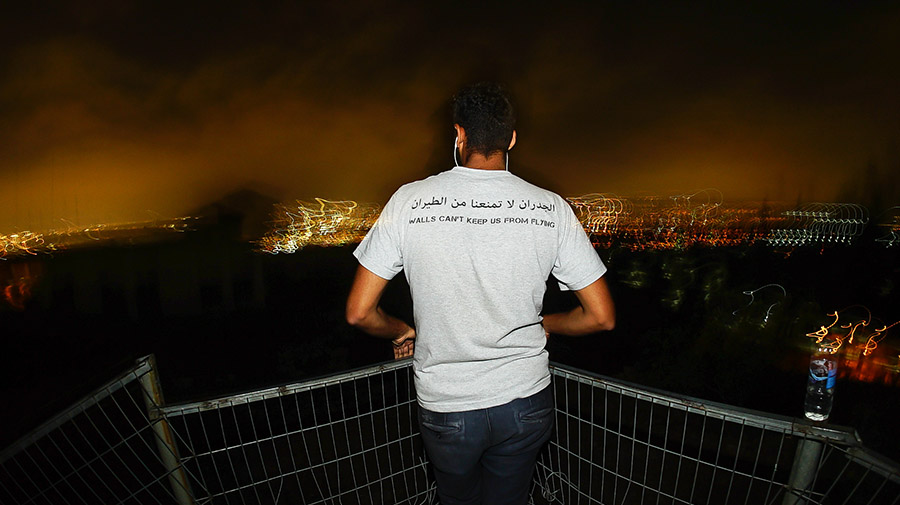 Picture by Joel Meinholz
Picture by Joel Meinholz